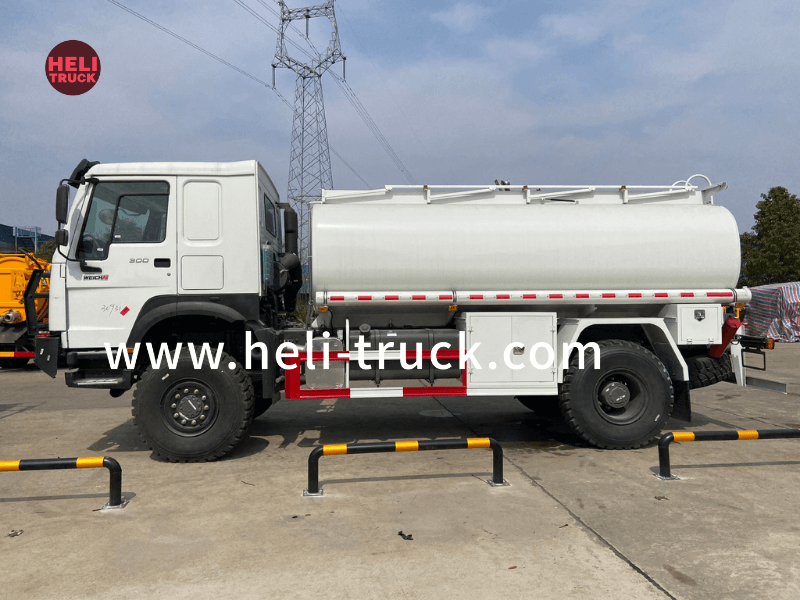Introduction
Garbage trucks play a crucial role in managing waste in cities and communities around the world. These vehicles are essential for collecting and transporting waste to disposal sites, helping to keep our environments clean and safe. However, the traditional process of collecting and disposing of waste in landfills is no longer sustainable in the face of growing populations and increasing environmental concerns. As a result, there is a growing need to enhance the efficiency and sustainability of garbage truck waste sorting processes.
The Importance of Waste Sorting
Waste sorting is the process of separating and categorizing different types of waste materials to facilitate recycling and proper disposal. By sorting waste at the source or during collection, valuable materials can be recovered and recycled, reducing the amount of waste that ends up in landfills. This not only helps to conserve natural resources and reduce energy consumption but also minimizes the environmental impact of waste disposal.
Garbage trucks play a critical role in waste sorting by collecting and transporting waste to sorting facilities or recycling centers. However, the traditional approach of collecting mixed waste in a single container and transporting it directly to landfills is no longer sufficient to address the challenges of modern waste management. To enhance efficiency and sustainability, garbage truck waste sorting processes need to be upgraded and optimized.
Challenges in Garbage Truck Waste Sorting
Despite the importance of waste sorting, garbage truck waste sorting faces several challenges that hinder its effectiveness and efficiency. One of the main challenges is the lack of proper infrastructure and technology to support waste sorting processes. Many cities and communities still rely on outdated waste collection systems that are not equipped to handle the complexities of sorting different types of waste materials.

Another challenge is the lack of awareness and participation among residents in waste sorting practices. Without the cooperation of individuals and businesses in separating their waste at the source, the effectiveness of garbage truck waste sorting processes is limited. Education and outreach programs are essential to promote waste sorting practices and encourage community involvement in waste management efforts.
Furthermore, the high cost of implementing waste sorting technologies and infrastructure can be a barrier for many municipalities and waste management companies. Investing in advanced sorting equipment, facilities, and training programs requires significant financial resources, which may not always be readily available. Finding cost-effective solutions to improve garbage truck waste sorting processes is crucial to overcoming this challenge.
Benefits of Enhanced Waste Sorting
Despite the challenges, there are numerous benefits to enhancing garbage truck waste sorting processes. By improving Flatbed truck load covering and effectiveness of waste sorting, cities and communities can achieve several positive outcomes, including:
1. Resource Conservation: Waste sorting allows valuable materials such as metals, plastics, and paper to be recovered and recycled, reducing the need for raw materials and conserving natural resources.
2. Energy Savings: Recycling and reusing materials from sorted waste require less energy than producing new products from raw materials, leading to energy savings and reduced greenhouse gas emissions.
3. Landfill Diversion: By diverting recyclable materials from landfills, waste sorting helps to reduce the amount of waste that ends up in disposal sites, extending their lifespan and reducing environmental pollution.
4. Economic Opportunities: The recycling and waste management industry creates job opportunities and stimulates economic growth through the processing and sale of recycled materials.
5. Environmental Protection: Proper waste sorting and recycling help to protect the environment by reducing pollution, conserving resources, and mitigating the impacts of climate change.
In summary, enhancing garbage truck waste sorting processes is essential for improving waste management practices, promoting sustainability, and protecting the environment. By addressing the challenges and maximizing the benefits of waste sorting, cities and communities can create a more efficient and sustainable waste management system for the future.
Conclusion
Garbage truck waste sorting plays a vital role in modern waste management practices, helping to reduce the environmental impact of waste disposal and promote sustainability. However, to enhance the efficiency and effectiveness of waste sorting processes, it is essential to address the challenges and barriers that hinder its implementation. By investing in infrastructure, technology, education, and outreach programs, cities and communities can optimize garbage truck waste sorting and maximize the benefits of recycling and resource conservation.
As we look towards the future of waste management, it is clear that enhancing garbage truck waste sorting will be crucial for building a more sustainable and environmentally friendly society. By working together to improve waste sorting practices, we can create a cleaner, healthier, and more sustainable world for future generations.
